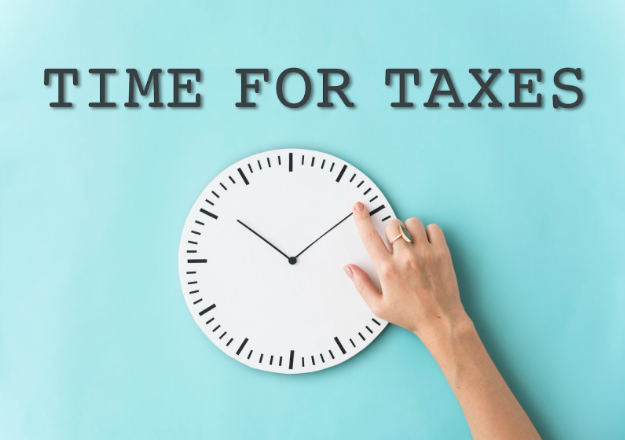
2024 Tax Filing: Why You Should File Your Tax
Many people don’t like to hear anything about taxes. The mere mention of taxes can evoke feelings of frustration and anxiety, since it’s associated with the task of going through the whole tax process and regulations. Not just that, it’s because nobody likes to part with their hard-earned money. These reasons can make the tax process feel overwhelming, leading individuals to disengage or adopt a negative attitude toward their tax obligations.
Also, there’s a common perception that taxes are merely a financial burden – a reduction in one’s hard-earned income without a visible, immediate return. However, taxes are not just deductions from paychecks; they are vital contributions to the functioning and improvement of society.
For most Canadians, the deadline to file taxes for the 2023 tax year is April 30, 2024. If you or your spouse or common-law partner are self-employed, you have until June 15, 2024, to file your taxes. However, since June 15 falls on a Saturday in 2024, the actual deadline will be the next business day, which is June 17, 2024
What are Taxes Being Used For?
Public Services
Societal functionality and welfare is dependent on taxes. Taxes are a fundamental source of funding for public services. These services include emergency services like police, fire. Beyond these, taxes support the operation of public libraries, parks, and recreational facilities that enrich community life and foster a sense of belonging among citizens.
Funding public services through taxes ensures that these essential services can be provided free or at a subsidized cost to all citizens, regardless of their individual ability to pay. The premise is that by making people pay taxes, society can afford to maintain and develop infrastructure and services that would have been expensive or inefficient for individuals to provide for themselves.
For instance, a significant portion of taxes might be allocated to healthcare and education in countries that prioritise the health and knowledge of their citizens as the foundations of a prosperous and equitable society. In this way, the way tax revenues are used not only provides necessary services but also shapes the character and future of the nation.
Infrastructure Development
Taxes are used in infrastructure development, such as the construction and maintenance of roads, bridges, public transportation systems, and utilities. All these are important for functioning of a modern economy, efficient movement of people, goods, and services across regions. Well-maintained infrastructure is essential for daily convenience and safety. It also attracts business investments and promotes economic growth.
Moreover, infrastructure projects funded by taxes create job opportunities, both during the construction phase and through the economic activities they enable once completed. This can lead to improved economic activity, which in turn increases tax revenues that can be reinvested in further development.
Education

Investing in education is investing in the future. Education equips individuals with the knowledge and skills to contribute to society and the economy. Public funding ensures that educational opportunities are available to all citizens, aiming to level the playing field and reduce inequalities by providing everyone with the chance to succeed.
Taxes poured into education can cover expenses like teacher salaries, school infrastructure, learning materials, and special education programs. This approach ensures that schools are not just places of learning but also safe and supportive environments that cater to the diverse needs of the student population. Furthermore, public investment in education brings about innovation and research, where universities often rely on government funding to conduct research. This can lead to scientific breakthroughs and technological advancements.
Likewise, a well-educated workforce is more productive, adaptable, and innovative.
Health Care
Access to healthcare is a fundamental right, not a privilege. Citizens should have access to healthcare irrespective of their class. Public health care systems funded by taxes can provide a wide range of healthcare services. Resources can be allocated based on public health needs, such as public health emergencies, managing outbreaks of infectious diseases, and the provision of long-term care services for the senior citizens.
5 implications of not Filing your tax
Penalties and Interest
Failing to file your taxes can lead to penalties and accruing interest, which can increase the amount you owe to the government. These penalties are imposed as a percentage of the unpaid tax and can vary depending on how late the tax filing is. The longer you delay, the more you accumulate in penalties and interest. The government implements these penalties to encourage timely filing and payment. Neglecting to file your taxes also signals non-compliance with tax laws, which can lead to further scrutiny from tax authorities.
Impact on Loan and Mortgage Applications
Tax returns are sometimes required when applying for loans, mortgages, or other forms of credit. They serve as proof of income and financial stability, which lenders use to assess your ability to repay the borrowed amount. Not having up-to-date tax filings may hinder your chances of loan approval, as it raises concerns about your financial management and compliance with legal obligations.
Legal Consequences and Prosecution
Severe cases of tax evasion, which begins with not filing tax returns, can lead to legal action, including prosecution. The legal system may interpret the failure to file taxes as an attempt to evade tax liabilities, especially if there are large amounts of unpaid taxes involved. This can lead to criminal charges, legal fees, and, in extreme cases, imprisonment.
Complications in Future Tax Filings
Not filing your taxes can complicate your financial life in the future. Each year that passes without filing adds to the complexity, as you may need to gather old financial documents and navigate changes in tax laws. This can make the process of becoming compliant more time-consuming and costly.
Conclusion

It’s your responsibility as a citizen to file your tax annually and before the deadline. It’s a debt you owe the government and the society, and you need to pay. If you have overwhelming debts that are preventing you from paying your taxes, kindly reach out to one of our debt experts at EmpireOne Credit. Your debt can be reduced by up to 80%, and interest will stop immediately. Call us at (416) 900-2324 to schedule a free consultation with us. Being debt-free feels good!





